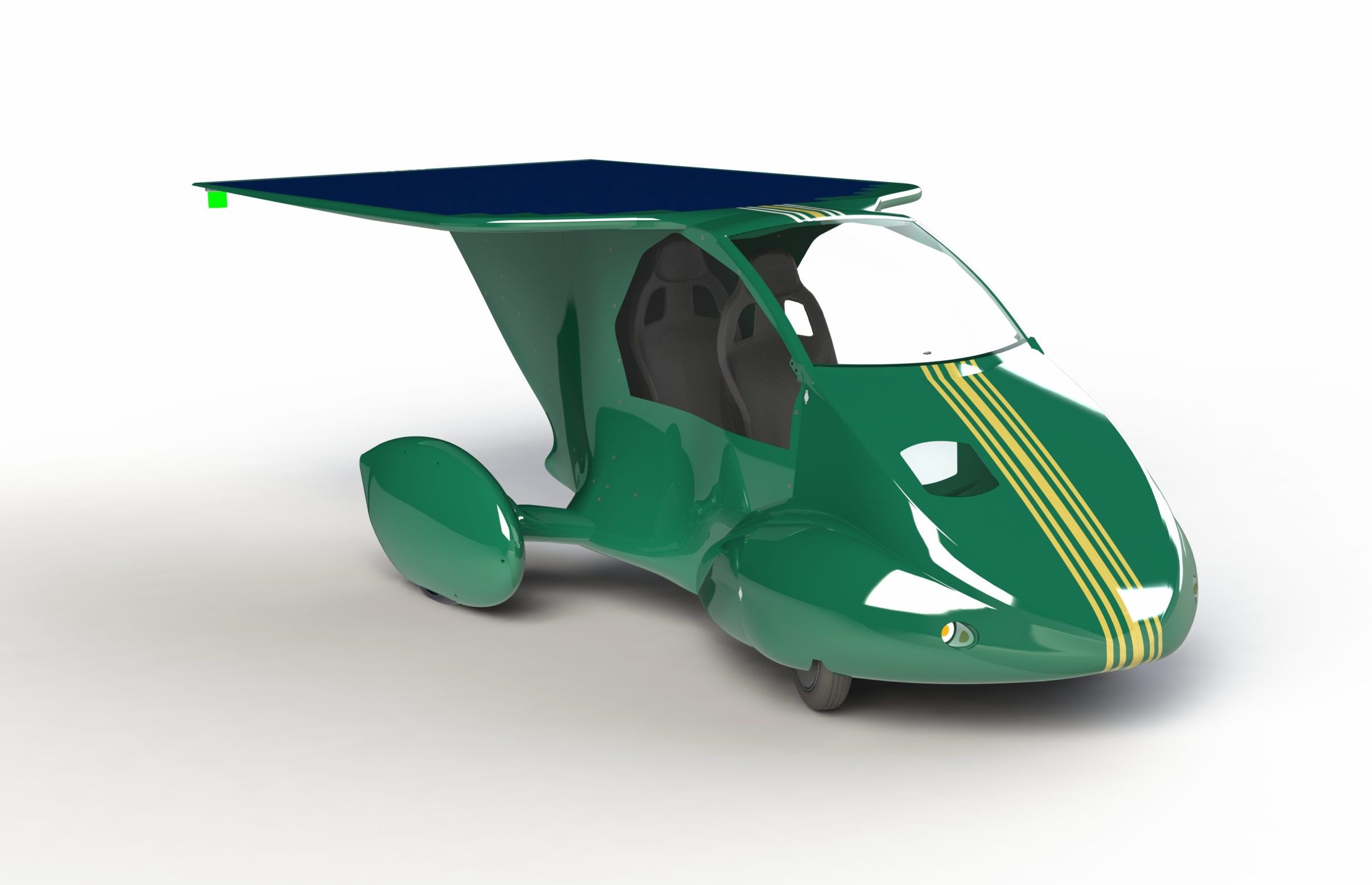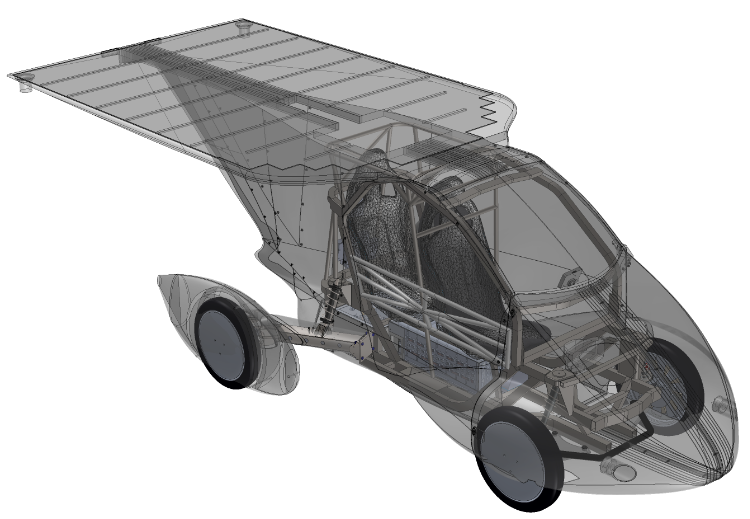
February 24, 2022, by sustainablenottingham
The University of Nottingham Racing Team and sustainability
Engineering students at the University of Nottingham are putting all their technical know-how to the test, designing and building a state-of-the-art electric racing car to push towards future sustainable transport solutions.
It will be showcased at the university’s Sustainability Fair on Tuesday 1 March 2022 as part of Sustainability Action Week.
History
The University of Nottingham Racing Team’s (UoNRT) efforts started in 2016 by building an electric vehicle (EV) for the prestigious educational engineering competition Formula Student. The ambitious and innovative design for the two-wheel drive EV has gone from strength to strength since then. Features include an integrated gearbox and in-hub motors in each rear wheel for a lighter and more efficient vehicle.
The team has moved consistently up the Formula Student leader board and achieved an impressive 3rd place in Formula Student UK 2021 held at Silverstone, the highest placed electric vehicle in the competition that year.

Frankie, the best EV at Formula Student UK 2021
Solar Challenge – a new chapter in sustainable transport
Seeking a new challenge, and the chance to work towards renewables-based transport, UoNRT opened a new chapter with their Solar Challenge project. Starting in 2021, the team are building their very first two-seater solar car in the Cruiser Class category. This solar-powered electric car will be both ultra-efficient and practical. UoNRT join a select group of universities teams from around the world working on such solar Cruisers. Their work paves the way for family-friendly, sustainable cars of the future that increase drivers’ independence from the grid and reduces the burden of ‘range anxiety’.
Green transport solutions are more important than ever to reduce our impact on the environment, and so UoNRT have designed the solar car from the ground up with sustainability in mind. Using the sun’s energy to recharge the EV is an obvious example of this. The team have gone further still by upcycling both the chassis and battery modules from old EVs, which would have otherwise gone to scrap. Key challenges in this endeavour have been to package the redesigned electric vehicle systems in the small Renault Twizy chassis frame, and to design a space-efficient, endurance battery pack from the Nissan Leaf battery modules.
The team hope to inspire a new approach to high-performance EVs, which taps into the principles of a circular economy, for more affordable, accessible and sustainable renewables-based transport.

Looking inside the two-seater solar car’s design
Skills for future engineers, sustainability enthusiasts and motorsports fans
UoNRT provides an opportunity for university students from across engineering, business and other backgrounds to develop and their apply skills in a practical project, similar to work in industry. Groups of engineering students work together to design and manufacture the different parts of the cars. In addition, students work on projects related to marketing, business plan development and even carbon footprint tracking. These all require creative problem solving and interdisciplinary collaboration. Most importantly, students are building the skills needed to drive progress in sustainable technologies for the future.
The team are also currently recruiting for various technical and non-technical roles! If you’d like to join, fill in this form to register your interest and they’ll be in touch in a couple of weeks. Anyone (students and researchers) with experience in or eagerness to learn electrical or mechanical engineering, business development, marketing, sponsorship, or sustainable engineering is welcome!
Find out more!
If you’re interested in finding out more, come and chat with UoNRT at the Sustainability Fair in the Engineering and Science Learning Centre on Tuesday 1 March, 11am-4pm. The team will be showcasing the progress they’ve made on their solar car, and you can learn about what it’s actually like to design and build a cutting-edge EV.
Also at the Sustainability Fair: make a smoothie on a bike, learn about engaging the public and policymakers in sustainability research, and chat to the careers team about working in sustainability.
No comments yet, fill out a comment to be the first

Leave a Reply